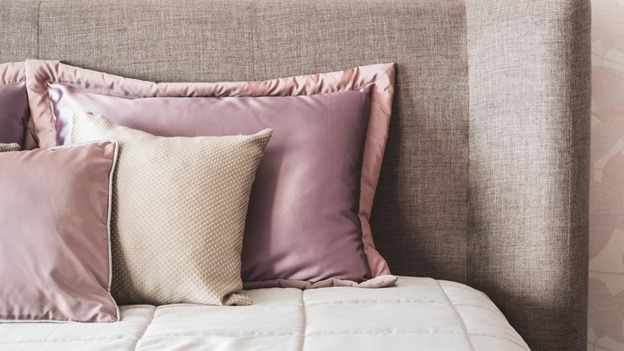Allergies can be a real nightmare. Whether you’re allergic to dust or pet dander, the symptoms—from sneezing to itching—can make it difficult to get a good night’s rest. But did you know that something as simple as your pillowcase can make a difference in helping relieve your allergies?
Silk pillowcases have become increasingly popular in recent years and many people swear by them—but do they really help with allergies? In this blog post, we’ll discuss the benefits of silk pillowcases for those with allergies and how these cases can help provide relief.
What Are Silk Pillowcases?
If you’re one of the millions of people who suffer from allergies, you know how important it is to find products that won’t aggravate your symptoms. Silk pillowcases are often touted as a hypoallergenic option for people with allergies. But what exactly is a silk pillowcase?
A silk pillowcase is made from 100% pure silk. Unlike other fabrics, silk doesn’t absorb dust and other allergens, which means they can’t become trapped in the fabric and come into contact with your skin while you sleep. Silk is also a natural temperature regulator, so it can help keep you cool and comfortable all night long.
If you’re looking for an allergy-friendly pillowcase, silk is a great option. Be sure to choose a quality product made from 100% pure silk for the best results.
How Do Silk Pillowcases Help With Allergies?
When it comes to allergies, the main thing that you want to do is keep your environment as clean as possible. This means dusting and vacuuming regularly, and using hypoallergenic bedding. Silk pillowcases are a great option for people with allergies, because they are naturally hypoallergenic and dust mite resistant.
If you suffer from seasonal allergies, you know that they can make sleeping quite difficult. Allergens like pollen can cause congestion and sneezing, making it hard to get a good night’s rest. Silk pillowcases can help to reduce your exposure to allergens while you sleep, because they create a barrier between your face and the pillow.
Pillowcases made from other materials can actually make allergies worse by trapping pollen and other allergens against your skin. Silk pillowcases allow your skin to breathe, which can help to reduce congestion and irritation caused by allergies.
Are There Any Other Benefits To Silk Pillowcases?
There are a few other benefits to silk pillowcases that make them ideal for people with allergies. Silk is a natural material that is resistant to dust mites and other allergens, making it an excellent choice for those with sensitivities.
Silk pillowcases are also naturally hypoallergenic and antibacterial, so they can help keep skin clear and reduce breakouts. They are also known to be more breathable than other fabrics, allowing for better air circulation throughout the night. Silk pillowcases can also help keep your hair from becoming dry and brittle as you sleep.
Additionally, silk pillowcases are hypoallergenic and won’t cause skin irritation like some synthetic fabrics can. Finally, silk is a breathable material that helps regulate body temperature, making it comfortable to sleep on in any season.
How To Choose A Silk Pillowcase
When it comes to choosing a silk pillowcase, there are a few things you’ll want to keep in mind.
- First, consider the size of the pillowcase. You’ll want to make sure it’s large enough to fit your pillow comfortably.
- Second, think about the color of the pillowcase. A light-colored pillowcase will help to reflect light and keep your head cool, while a dark-colored pillowcase will absorb heat and help keep your head warm.
- Third, consider the thread count of the fabric. The higher the thread count, the more tightly woven the fabric will be, and the more durable it will be over time.
- Fourth, choose a pillowcase with a satin or silk finish for the best feel against your skin.
- Finally, don’t forget to account for any special needs you may have, such as an allergy to dust mites or sensitivities to certain fabrics. By keeping all of these factors in mind, you can be sure to find a silk pillowcase suitable for you.
Conclusion
Silk pillowcases are a great choice for those who suffer from allergies. Not only do they help reduce the concentration of dust mites, but also provide a softer and cooler sleeping surface to promote better sleep quality.
Furthermore, silk pillowcases are also hypoallergenic and resistant to mold and mildew which makes them ideal for people with sensitive skin or respiratory issues. With all these benefits in mind, it’s no wonder why so many people with allergies turn to silk pillowcases as their soothing solution.


